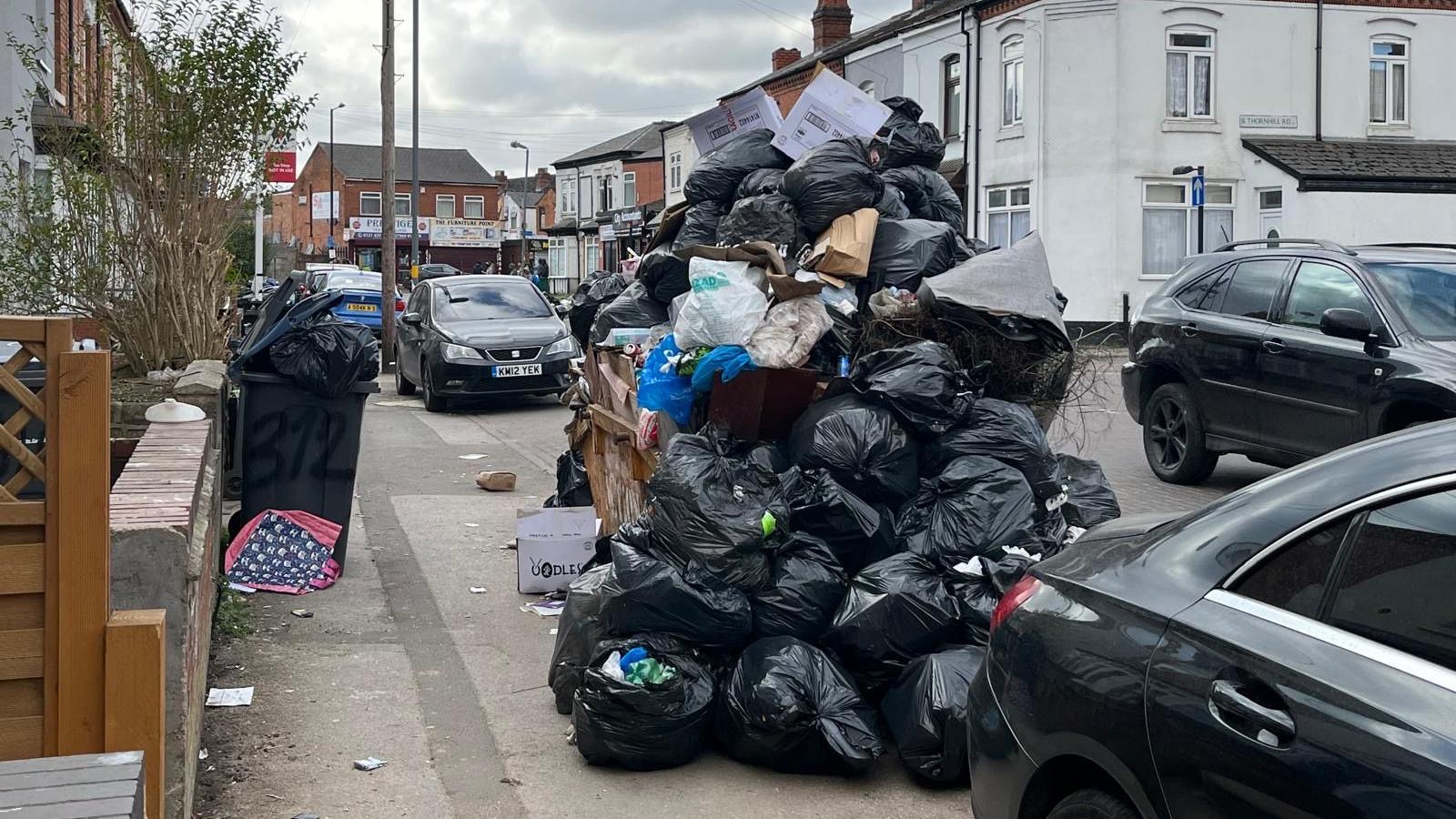A CRISIS OF WASTE, WAGES, AND INEQUALITY. Since 11th March 2025 Birmingham has been grappling with a significant refuse collection crisis. A strike by bin workers, represented by the Unite union, has led to over 20,000 tonnes of uncollected waste accumulating on the city’s streets. This has raised serious public health concerns and highlighted deeper issues within the city’s governance and labour relations.

It seems ridiculous that a dispute over a proposed cost-saving designed to save the hard-pressed metropolitan authority some elbow-room should have been allowed to escalate to a full-blown strike. The lessons of industrial unrest from the 1980s (taught to many of us as part of the A Level history and politics curricula) have been forgotten: it’s almost impossible to remove significant elements of pay from the lowest-paid workers without determined and costly industrial disruption. Some council leader heads need to roll as a mea culpa and then the union will have to accept some face-saving change to the name of the new roles, but the money will have to be saved one way or another.
Origins of the Dispute
The strike centers around the proposed elimination of the Waste Recycling and Collection Officer (WRCO) role by Birmingham City Council. The council contends that the WRCO position is redundant and that its removal is necessary for financial sustainability. They argue that affected employees have been offered alternative roles with equivalent pay, training opportunities, or voluntary redundancy packages. Conversely, the Unite union asserts that approximately 150 to 170 members face potential pay cuts of up to £8,000 annually, with hundreds more losing out on pay progression. The union also emphasises the WRCO role’s importance to health and safety.
Impact on the City
The strike’s effects are starkly visible across Birmingham. In many neighbourhoods, rubbish piles have reached up to 2m high, smell rank and attract vermin. Residents report sightings of unusually large rats, exacerbating public health fears. Notably, the crisis has underscored existing socio-economic disparities within the city: wealthier areas like Harborne and Edgbaston have seen quicker waste removal, while inner-city neighborhoods such as Sparkhill, Balsall Heath and Ladywood continue to suffer from accumulating refuse. Residents in these areas express frustration, feeling neglected and highlighting a perceived prioritisation of affluent communities.
Financial Strains and Governance Challenges
Birmingham City Council’s financial woes are a backdrop to the current crisis. In 2023, the council effectively declared itself bankrupt after being hit by a £760 million bill related to equal pay claims and a huge overspend on IT system upgrades. This financial strain has necessitated budget cuts and restructuring efforts, including the controversial changes to waste management roles. The council’s attempts to resolve the strike have included offers of alternative employment and training for affected workers. However, these proposals have been rejected by the union, which deems them insufficient. The impasse has led to the involvement of military planners to assist in managing the waste crisis, though no troops have been deployed as yet.
Broader Implication
The Birmingham bin strike is emblematic of broader challenges facing local governments in the UK. Decades of political neglect and funding cuts have left many councils struggling to provide basic services. The situation in Birmingham serves as a cautionary tale of how financial mismanagement and labor disputes can converge, leading to significant disruptions in public services. As the strike continues, residents and officials alike are calling for a resolution that addresses both the immediate waste crisis and the underlying issues of fair pay and effective governance. Beneath all of these issues lies a structural political issue – the local government structures closest to the people have very limited powers to raise the income they need to provide the services their residents need. The balance of UK local government finance needs a total rebalance: local income tax anyone?
Thank you for reading – please check our insta: @theworldfukpolitics

Leave a Reply